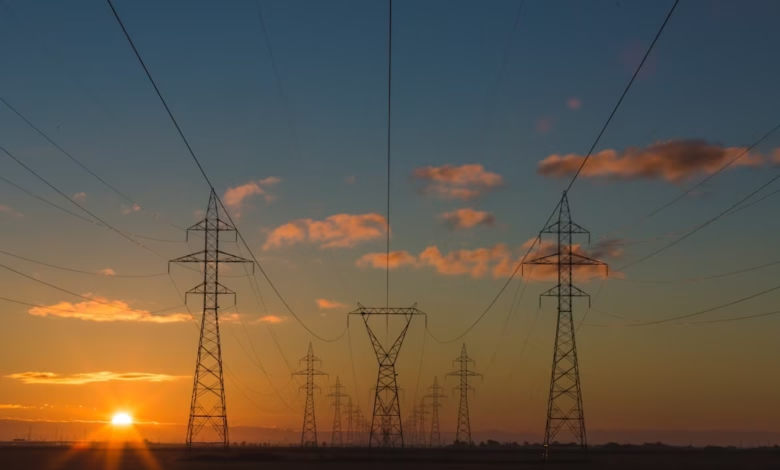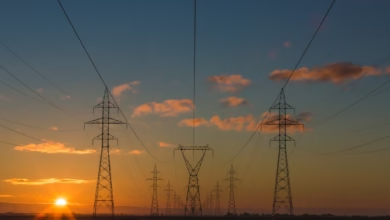Navigating the Environmental Impact of Oil: Addressing Oil Spills, Emissions, and Sustainable Solutions for Energy Security

The environmental impact of oil is a pressing issue that continues to shape discussions around energy security and sustainability. As the global demand for crude oil persists, the consequences of oil spills, emissions, and ecological damage become increasingly apparent. Understanding the intricacies of oil refining and the complex dynamics of the oil market is essential for comprehending how oil consumption affects our planet. With offshore drilling and oil transportation posing significant risks to marine life and ecosystems, the stakes are higher than ever. Moreover, the ongoing volatility in oil prices and the geopolitical implications of oil reserves further complicate the conversation surrounding energy resources.
In this article, we will delve into the environmental impact of oil by exploring the adverse effects of oil spills and emissions on ecosystems, the challenges posed by offshore drilling, and the potential of oil alternatives and biofuels as sustainable solutions for our energy future. As we examine the current landscape of oil technologies and regulations, we aim to provide a comprehensive overview of the interconnectedness of oil geopolitics, the global oil trade, and the imperative for responsible oil consumption. Join us as we navigate the complexities of oil and its effects on the environment, paving the way for a more sustainable approach to energy security.
- 1. The Environmental Impact of Oil: Understanding Spills, Emissions, and Ecosystems
- 2. Offshore Drilling and Oil Transportation: Risks to Marine Life and Ecosystems
- 3. Oil Alternatives and Biofuels: Sustainable Solutions for the Future of Energy Security
1. The Environmental Impact of Oil: Understanding Spills, Emissions, and Ecosystems
The environmental impact of oil is a critical issue that encompasses various dimensions, including oil spills, emissions, and the broader effects on ecosystems. Oil, particularly crude oil, has been a cornerstone of the global energy landscape, heavily influencing oil market trends and geopolitical dynamics. However, the consequences of oil consumption and production are profound and often detrimental to the environment.
Oil spills are perhaps the most visible and catastrophic manifestation of the environmental impact of oil. These incidents can result from offshore drilling accidents, pipeline ruptures, or oil transportation mishaps. The immediate effects can be devastating, leading to extensive damage to marine ecosystems, including the death of aquatic life, contamination of habitats, and long-term degradation of coastal areas. The cleanup efforts are often complex and costly, highlighting the need for stringent oil regulation and compliance measures to prevent such disasters.
In addition to spills, emissions from oil refining and combustion contribute significantly to air pollution and climate change. The burning of oil releases greenhouse gases, which play a pivotal role in global warming. As oil consumption continues to rise, driven by increasing energy needs and oil field services, it is imperative to explore oil alternatives and biofuels that can mitigate these emissions. Moreover, the shift towards natural gas as a cleaner energy source is gaining traction, providing a potential pathway to reducing the carbon footprint associated with oil.
The extraction and transportation of oil also pose risks to ecosystems. Oil exploration in sensitive areas, such as oil sands and offshore drilling sites, can disrupt local wildlife and habitats. The infrastructure required for oil storage and transportation, including pipelines, can lead to fragmentation of ecosystems and threaten biodiversity. Furthermore, the geopolitical implications of oil trade, particularly among OPEC nations and shale oil producers, underscore the interplay between energy security and environmental sustainability.
Addressing the environmental impact of oil necessitates a multifaceted approach, including advancements in oil technologies that enhance safety and reduce emissions. Implementing effective oil price hedging strategies can also influence the stability of the oil market, encouraging investments in cleaner energy sources and reducing dependence on fossil fuels. As the global community seeks to balance economic interests with ecological preservation, understanding the intricate relationship between oil and the environment is crucial for fostering sustainable practices in the oil industry.
References:
– International Energy Agency. (2023). Oil Market Report. Retrieved from [IEA website link]
– National Oceanic and Atmospheric Administration. (2023). Oil Spills and Their Impact. Retrieved from [NOAA website link]
– World Wildlife Fund. (2023). The Effects of Oil on Marine Life. Retrieved from [WWF website link]
2. Offshore Drilling and Oil Transportation: Risks to Marine Life and Ecosystems
Offshore drilling and oil transportation pose significant risks to marine life and ecosystems, leading to severe environmental consequences. As the global demand for crude oil continues to rise, driven by oil consumption and energy security concerns, the oil market trends indicate a growing reliance on offshore drilling operations. These activities are often conducted in delicate marine environments, where the potential for oil spills can devastate local ecosystems.
One of the primary threats from offshore drilling is the risk of oil spills, which can result from equipment failure, human error, or natural disasters. When oil spills occur, they can have catastrophic effects on marine biodiversity, including fish populations, seabirds, and marine mammals. The toxic components of crude oil can cause immediate harm, while long-term exposure may lead to reproductive issues and habitat destruction. In addition, oil refining processes can produce harmful emissions that further impact air and water quality, adding another layer of risk to these ecosystems.
Oil transportation also presents significant challenges. The movement of oil through pipelines and tankers poses risks not only from potential leaks but also from the environmental impact of increased shipping traffic, which can disrupt marine habitats and lead to accidents. The global oil trade is heavily influenced by OPEC decisions, shale oil production, and geopolitical factors, all of which can affect the frequency and scale of offshore drilling operations.
Moreover, the growing interest in biofuels and oil alternatives has prompted discussions around the need for stricter oil regulation and compliance measures to mitigate these risks. While innovations in oil technologies and oil field services aim to improve safety and efficiency, the inherent dangers associated with offshore drilling and oil transportation remain a significant concern for environmentalists and policymakers alike.
In summary, the environmental impact of oil extends beyond oil spills to encompass the broader implications of offshore drilling and oil transportation on marine life. As oil prices fluctuate and the dynamics of the oil market evolve, it is crucial to prioritize ecological protection and explore sustainable energy solutions to safeguard our oceans and their diverse ecosystems.
3. Oil Alternatives and Biofuels: Sustainable Solutions for the Future of Energy Security
As the world increasingly grapples with the environmental impact of oil, the search for sustainable alternatives has become paramount. Oil alternatives, particularly biofuels, present viable solutions that not only help mitigate ecological damage but also enhance energy security. Biofuels, derived from organic materials such as plants and waste, offer a renewable source of energy that can significantly reduce dependency on crude oil and its associated challenges.
The transition to biofuels can be seen as a strategic move in response to fluctuating oil prices and the volatile nature of the oil market trends influenced by OPEC and global oil trade dynamics. By investing in biofuel technologies, governments and industries can diversify their energy sources, ensuring a more stable energy supply that is less susceptible to the geopolitical tensions often surrounding oil exploration and offshore drilling.
Moreover, biofuels contribute to reducing greenhouse gas emissions, addressing one of the critical concerns regarding oil consumption. Unlike traditional fossil fuels, biofuels can be produced sustainably, utilizing waste products and non-food crops, which minimizes their environmental footprint. This aligns with the growing need for oil compliance and regulation aimed at decreasing the ecological impact of oil refining and transportation.
The integration of biofuels into existing oil supply chains can also enhance oil storage and distribution systems, allowing for a smoother transition to greener energy sources. As the world moves toward a more sustainable future, the role of biofuels in addressing the environmental impact of oil will be crucial. By focusing on oil alternatives, we can work towards energy security that is both environmentally friendly and economically viable, paving the way for a more sustainable energy landscape and reducing reliance on oil field services and shale oil production.
In summary, embracing biofuels and other oil alternatives not only serves as a practical response to the ongoing environmental concerns related to traditional oil consumption but also aligns with the future of energy security, ensuring a stable and sustainable energy supply for generations to come.
In conclusion, the environmental impact of oil remains a pressing concern that encompasses a range of critical issues, from devastating oil spills and harmful emissions to the broader ecological damage wrought by offshore drilling and oil transportation. As we have explored, the risks to marine life and ecosystems are significant, underscoring the urgent need for improved oil regulation and compliance measures within the oil industry.
However, the pursuit of energy security does not have to rely solely on traditional crude oil sources. The emergence of oil alternatives and biofuels presents a sustainable path forward that can mitigate the negative consequences of oil consumption while still supporting the global oil trade. By investing in innovative oil technologies and exploring renewable energy options, we can reduce our dependence on fossil fuels, thus lessening the environmental impacts associated with oil refining, petrochemicals, and oil pipelines.
As the oil market trends continue to evolve, driven by geopolitical factors and shifts in consumer demand, it is essential for stakeholders—from governments to investors—to consider the long-term implications of their actions. The transition towards cleaner energy sources will require a collaborative effort, emphasizing the importance of responsible oil field services and sustainable oil supply chains.
Ultimately, addressing the environmental impact of oil is not only a matter of ecological preservation but also a crucial step towards ensuring a resilient and secure energy future. By prioritizing sustainable practices and investing in oil alternatives, we can pave the way for a healthier planet and a more stable energy landscape for generations to come.
References:
(Include your references here in APA format)





